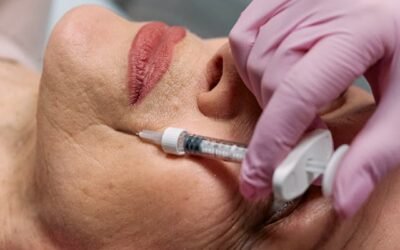Addressing Post-Treatment Detoxification in Cancer Survivors with Homeopathy
Benefits of Homeopathy for Detoxification
Non-Toxic and Gentle
Homeopathic remedies are known for their safety and gentle action, making them suitable for patients recovering from the harsh effects of cancer treatments.
Individualized Care
Homeopathy focuses on treating the individual, addressing specific symptoms and overall health conditions, thus providing personalized detoxification support.
Enhanced Healing
By stimulating the body’s natural healing mechanisms, homeopathy can help in the detoxification process and improve vitality and resilience.
Common Homeopathic Remedies for Detoxification
- Nux Vomica
Ideal for detoxifying the digestive system and liver.
Helps in alleviating symptoms such as nausea, indigestion, and constipation which are common after chemotherapy. - Carduus Marianus (Milk Thistle)
Known for its liver-protective properties.
Supports liver detoxification and can help in managing symptoms of liver congestion and jaundice. - Sulphur
Effective for skin-related detox symptoms such as itching, rashes, and acne.
Promotes the elimination of toxins through the skin. - Chelidonium Majus
Useful for liver and gallbladder detoxification.
Provides relief from symptoms such as right-sided abdominal pain and jaundice. - Arsenicum Album
Suitable for detoxifying harmful substances and alleviating anxiety and restlessness.
Helps in addressing digestive issues like diarrhea and vomiting. - Baptisia Tinctoria
Assists in managing septic conditions and general weakness.
Helps in boosting the immune system and fighting off infections.
Considerations
- Professional Guidance –
Consultation: It is essential to consult a qualified homeopath to ensure proper remedy selection and dosing tailored to individual needs.
Safety: Collaborate with your healthcare provider to ensure that homeopathic treatments do not interfere with any ongoing conventional treatments or medications.
- Detoxification Process-
Hydration: Ensure adequate fluid intake to support the elimination of toxins.
Nutrition: Maintain a balanced diet rich in fruits, vegetables, and whole grains to aid the detox process.
Lifestyle: Incorporate gentle exercise, sufficient rest, and stress-management techniques such as meditation or yoga.
- Monitoring and Follow-up –
Symptom Tracking: Regularly monitor symptoms and treatment responses, and adjust homeopathic remedies as needed.
Professional Oversight: Maintain regular follow-ups with your healthcare team to ensure a comprehensive and effective detoxification plan.
- Complementary Approaches –
Herbal Support: Herbs such as milk thistle, dandelion root, and burdock root can complement homeopathic detoxification efforts.
Alternative Therapies: Consider integrating other complementary therapies such as acupuncture, massage, or hydrotherapy to support overall detoxification and well-being.
Conclusion
Homeopathy provides a gentle and holistic approach to post-treatment detoxification for cancer survivors, aiming to alleviate residual symptoms and support overall health. By working with qualified homeopathic practitioners and coordinating with conventional healthcare providers, cancer survivors can create a balanced and personalized detoxification plan. Integrating lifestyle changes and complementary therapies can further enhance the detoxification process and improve quality of life.
While homeopathy can be beneficial, it’s essential to maintain open communication with healthcare professionals and continue monitoring health status and treatment efficacy.
Articles
Homeopathy for Managing Skin Health in Cancer Survivors
Homeopathy for Managing Skin Health in Cancer SurvivorsCancer treatments such as chemotherapy, radiation therapy, and...
Reducing Cancer Treatment-Induced Nausea and Vomiting with Homeopathy
Reducing Cancer Treatment-Induced Nausea and Vomiting with HomeopathyCancer treatment-induced nausea and vomiting...
Homeopathy for Managing Chemotherapy-Induced Neuropathy
Homeopathy for Managing Chemotherapy-Induced NeuropathyChemotherapy-induced neuropathy (CIPN) is a common and...



